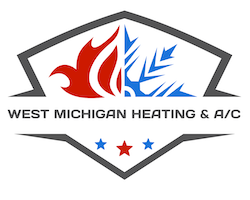It’s always nice when we manage to save money on our utility bills, but it turns out there’s a way to lower energy use, even when you’re not even home.
It starts with your thermostat. By learning more about its special features and settings, you can tailor the temperature to your needs. You can create a number of automated temperature settings for when you’re at home, away or even when you’re sleeping.
With a few simple adjustments, you have more time to enjoy pleasant temperatures while keeping more money in your pocket. Check out our guide on how your thermostat can save you money in the summer:
While at Home
Pretty much whenever you’re home, you want comfortable temperatures. It’s only natural to want your thermostat lower in the summer while inside to appreciate the cool air.
But the most energy-efficient temperatures for the summer is in fact anywhere between 78 and 80 degrees Fahrenheit. By adjusting things a few degrees, you’ll avoid the worst of summer while still keeping your energy bills low.
While Gone
When setting the temperature for whenever you’re gone, it’s advantageous to set the thermostat higher than you would if you were in the house.
If your home is located somewhere a little cooler, you can set the thermostat to higher temperatures like 88 degrees while no one is home before lowering it back to the sweet spot of 78-80 degrees after you return. This way, your air conditioning won’t have to work constantly to provide cooling for a bunch of empty rooms.
While Sleeping
For a full night’s rest during summer weather, you want a temperature that’s nice and cool. A good rule of thumb is between 68-72 degrees Fahrenheit. You won’t have to worry about getting too hot or too cold at some point overnight.
Other Strategies for Lowering Energy Use:
- Smart thermostat installation: Using a smart thermostat in the summer can lower energy costs as it forms temperature schedules according to your lifestyle and home environment. It’ll take care of making changes while you are home or sleeping, before allowing it to get warmer when no one is home. With models like the Lennox iComfort, you have the ability to remotely access and change the temperature through your smartphone, tablet or laptop. Scheduling smart thermostat installation in your Hudsonville home is an effortless way to set the correct temperature whether you’re at home or across the country.
- Update your existing HVAC system: A new HVAC system is another great option for long-term energy savings. By investing in a more energy-efficient system, lower utility bills won’t be far behind since it requires less energy to achieve comfortable temperatures. Air conditioning installation in Hudsonville is a breeze for experienced professionals like West Michigan Heating & Air Conditioning Services.
- Schedule annual AC maintenance: Hiring a skilled professional to perform regular air conditioning maintenance in Hudsonville can have a serious effect on your total monthly energy use. If you stay on top of cleaning key components like the coils, checking for damage and keeping vents clear of dust and debris, this can help your HVAC system perform better during day-to-day use.. Higher energy efficiency will also reduce strain on key parts and lowers operational costs, lowering total energy use and eventually the total monthly bill.
- Replace your air filter regularly: A regular schedule for cleaning or replacing the HVAC system’s air filter saves money by helping air flow efficiently through your air conditioner. When filters are clogged with dirt and debris, your air conditioner will have to work harder, and the strain can reduce the system’s life span and lead to breakdowns.
- Check if you have enough insulation in the attic: Insulation is a vital part of maintaining an energy-efficient home, keeping the hot air outside and the cool air inside through summer. The North American Insulation Manufacturers Association (NAIMA) suggests that homeowners living in southern climates should have at least 13-14 inches of insulation, while states further north need 16-18 inches.
- Inspect your air ducts: A leak in the air ducts could increase your energy bills much more than 20 percent, plus it can potentially allow harmful emissions from your water heater, clothes dryer and other appliances throughout your home. Watching for signs of leaks and sealing them can help with both these issues.
- Seal all other leaky spots in your home: Finding and sealing any remaining leaks in your home with caulk, foam sealant or weather-stripping can help keep it cooler on hot summer days. You should also check for any gaps around windows, doors and even outdoor fixtures. Taking the time to seal up any leaks now can help you save a lot over time.


